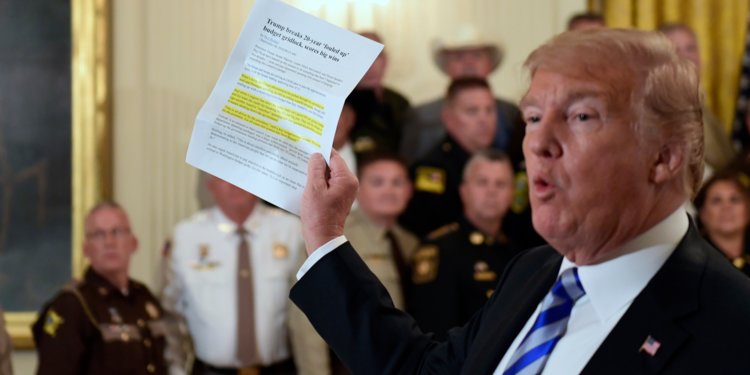
Waste, Negligence & Cronyism: Inside UK’s Pandemic Spending - The New York Times
I see the US has picked up the UK Pandemic spending scandal whilst our Gov claims there’s nothing to see @JolyonMaugham @DamianHastie @allthecitizens

But 1 in 10 contracts that went through the Government’s VIP Crony lane were awarded compared to 1 in 100 through the ordinary lane.

More from Economy
In this paper, we study vote choices of voters who are left-wing on economic issues and authoritarian/nationalist on cultural issues, especially immigration. For these voters, there is no often party combining positions in this way.
In the data from the Campaign Panel of the German Election Study 2017, many voters prefer higher social benefits and taxes and want to restrict immigration. @ches_data show that no party bundles issue positions in this way.
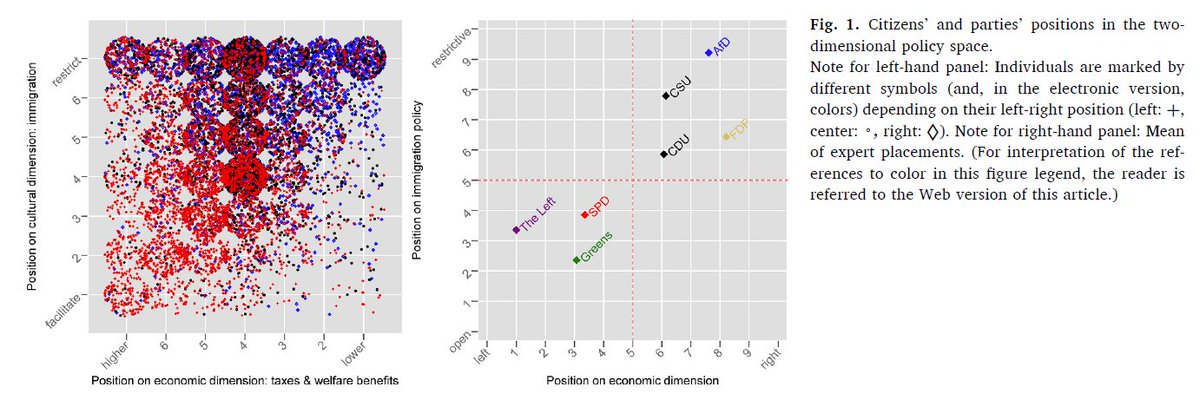
In the article, we show that many such “left-authoritarians” perceive the party they voted for to also hold a left-authoritarian position. Interestingly, this includes many AfD voters who report a perceived left-wing economic position of the party.
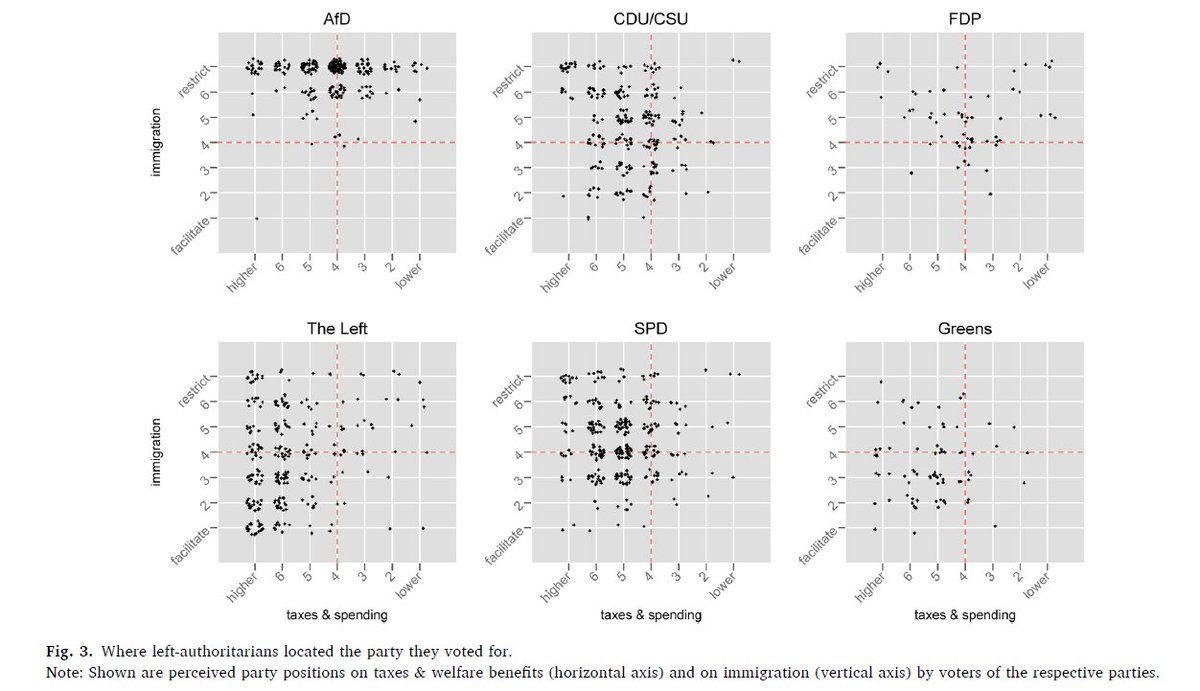
Our statistical models study the interplay between this (mis-)perceived congruence and issue importance, using an open-ended question on the most important political problem in Germany.
We find that (mis-)perceived congruence and issue importance interactively shape the left-authoritarian vote. Simply, perceived congruence matters more on an important issue—and issue salience matters most if voters accurately perceive incongruent party supply.
Vol 70 Apr | '#Vote choices of left-#authoritarians: Misperceived congruence and issue #salience' by @NilsSteiner and Sven Hillen is now available @ches_data @german_gles #Germany https://t.co/pmCoP5t7CL pic.twitter.com/Vl8rCahcZL
— Electoral Studies (@ElectoralStdies) January 30, 2021
In the data from the Campaign Panel of the German Election Study 2017, many voters prefer higher social benefits and taxes and want to restrict immigration. @ches_data show that no party bundles issue positions in this way.

In the article, we show that many such “left-authoritarians” perceive the party they voted for to also hold a left-authoritarian position. Interestingly, this includes many AfD voters who report a perceived left-wing economic position of the party.

Our statistical models study the interplay between this (mis-)perceived congruence and issue importance, using an open-ended question on the most important political problem in Germany.
We find that (mis-)perceived congruence and issue importance interactively shape the left-authoritarian vote. Simply, perceived congruence matters more on an important issue—and issue salience matters most if voters accurately perceive incongruent party supply.
Does raising the minimum wage reduce the number of low-wage jobs?
No.
"We also find no evidence of disemployment when we consider higher levels of minimum wages."
https://t.co/vlgagEHeyy
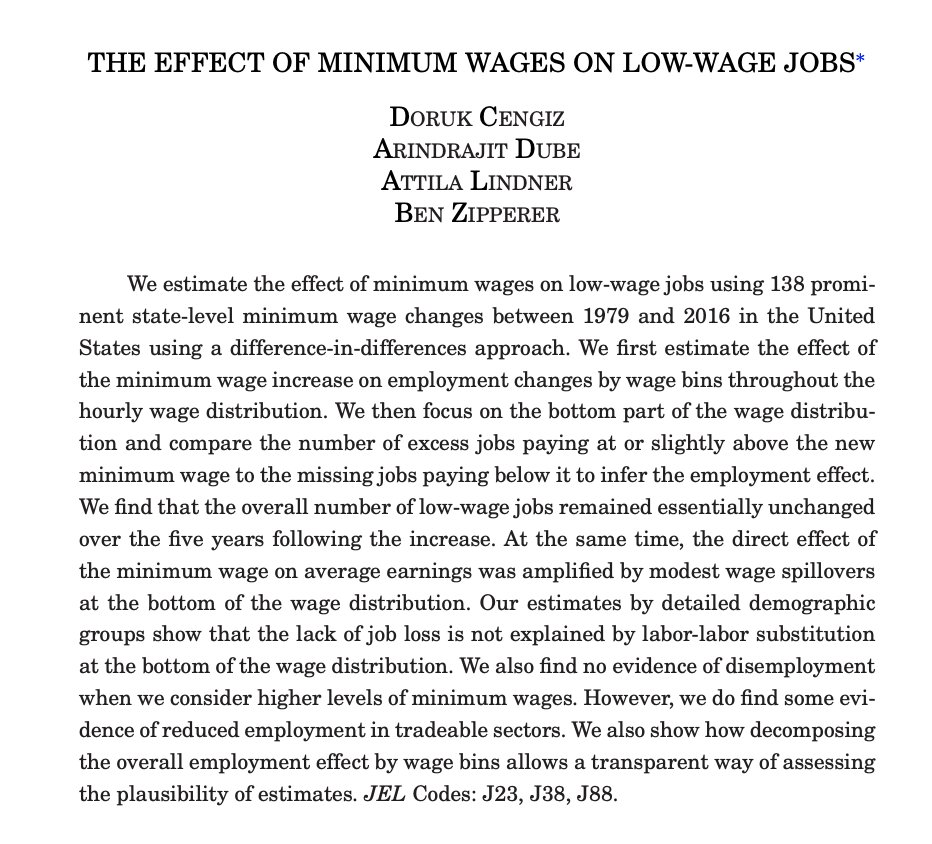
Minimum wage increases reduce crime.
https://t.co/1G1clXqF9t
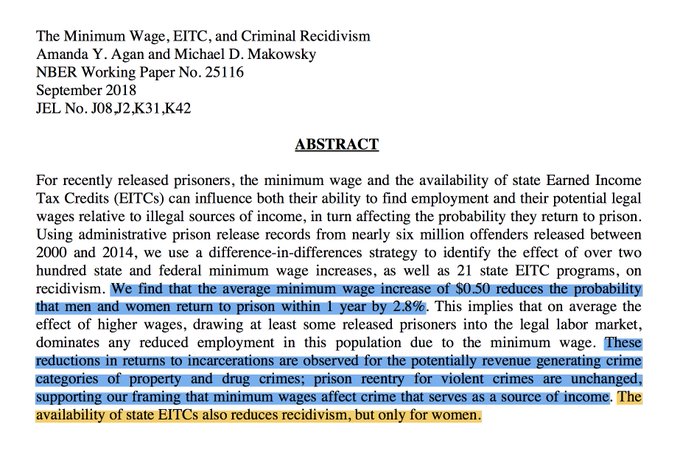
When you increase the minimum wage, you decrease infant mortality among poor families.
https://t.co/iwW1FDsLYG
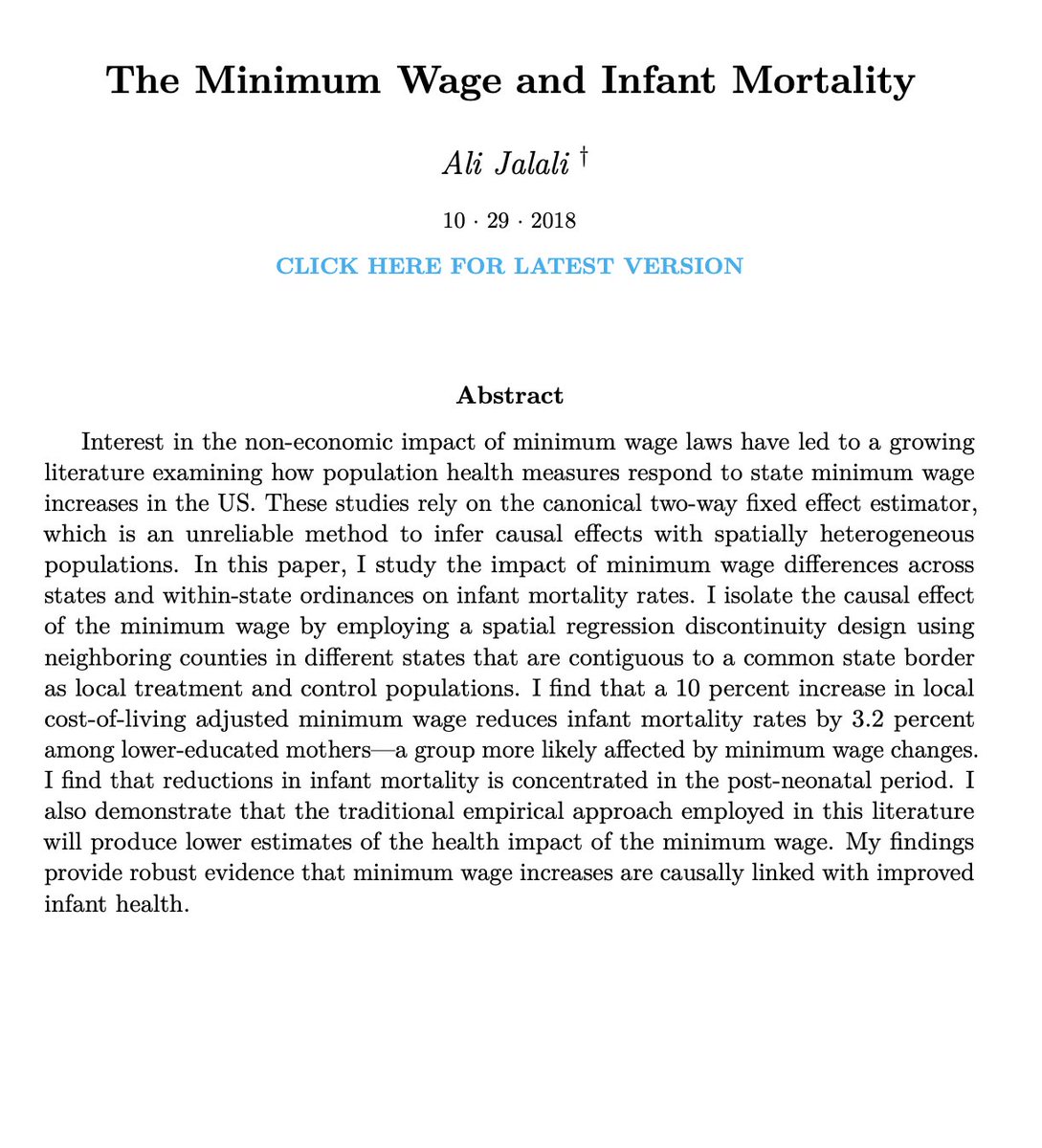
Increasing the minimum wage improves kids' health.
https://t.co/66DLHERpOJ
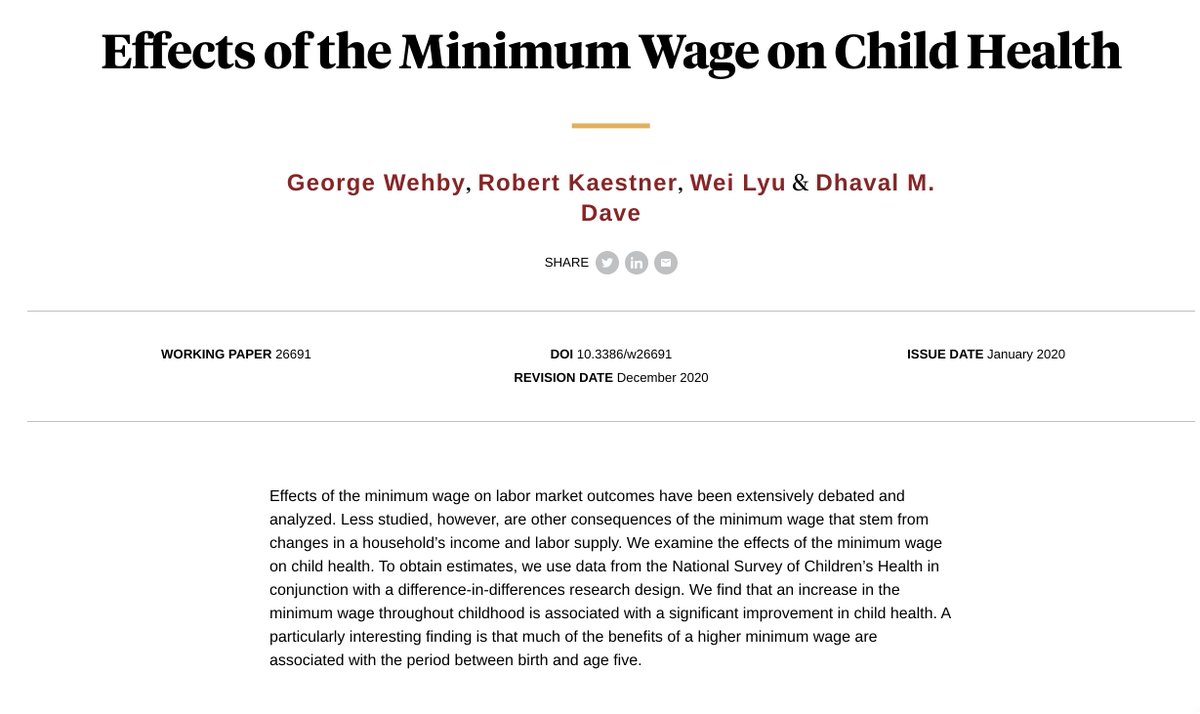
The minimum wage reduces racial income inequality.
https://t.co/wkn9Ajotlx
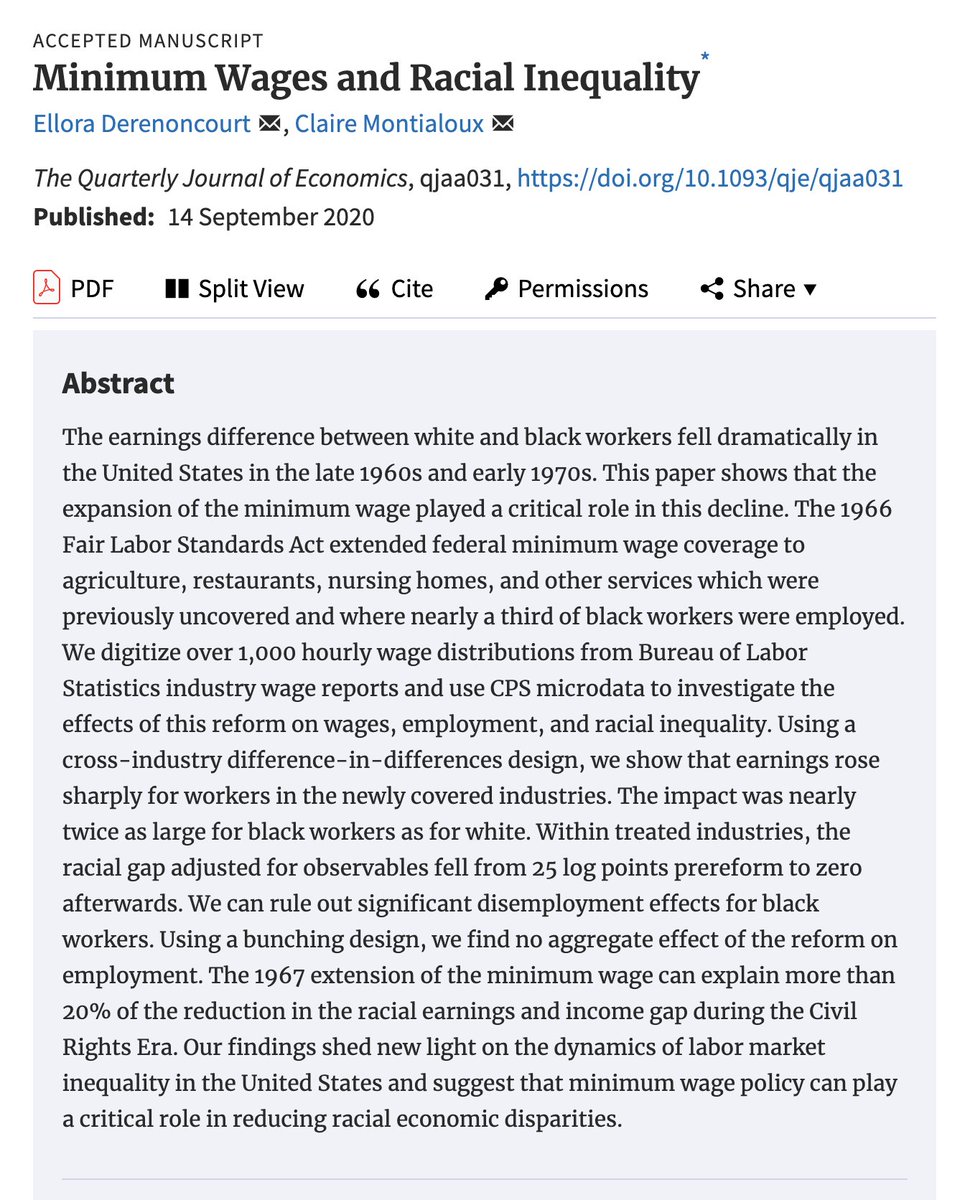
No.
"We also find no evidence of disemployment when we consider higher levels of minimum wages."
https://t.co/vlgagEHeyy

Minimum wage increases reduce crime.
https://t.co/1G1clXqF9t

When you increase the minimum wage, you decrease infant mortality among poor families.
https://t.co/iwW1FDsLYG

Increasing the minimum wage improves kids' health.
https://t.co/66DLHERpOJ

The minimum wage reduces racial income inequality.
https://t.co/wkn9Ajotlx























